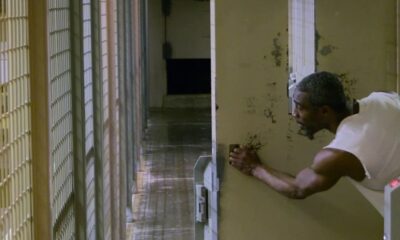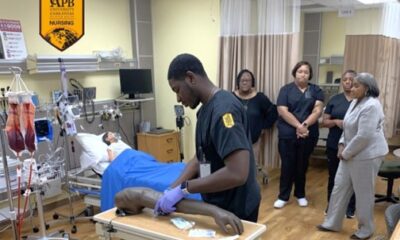Featured This Month
A Civil Rights Pioneer Looks Beyond the Washington March Anniversary

Imagine at least 250,000 people covering the National Mall in Washington, D.C., all with a common goal. That was the reality on Aug. 28, 1963. Known as the largest rally for human rights in America’s history, people from across the country nonviolently protested, armed with just their unbroken sense of pride and faith. This week, 50 years later, America celebrated.
While 1963 was powered by the March on Washington and Dr. Martin Luther King Jr.’s iconic “I Have a Dream” speech, 1963 was also marred by great tragedy.
“Segregation now, segregation tomorrow and segregation forever,” uttered by Alabama Gov. George Wallace, reflected common sentiment at the time. In this same year in which many fought desperately for human rights, there were stubborn forces that doggedly opposed.
One cannot forget that June 12 night in 1963 when Medgar Evers, a prominent NAACP civil rights worker, was gunned down in front of his Mississippi home. Or who can overlook the four young black girls (Addie Mae Collins, Carole Robertson, Cynthia Wesley and Denise McNair) killed in September that same year in the bombing of the 16th Street Baptist Church in Birmingham, Ala. And it will never be forgotten that the President of the United States, John F. Kennedy, was assassinated in Dallas in November of 1963. Now, 50 years later, it is undeniable that the country is in a better place.
One of the men America should thank is minister, author and civil rights activist Dr. Cordy Tindell C.T. Vivian. For all of his efforts, President Barack Obama has named Vivian a recipient of the Presidential Medal of Freedom this year, the highest civilian award in the United States.
The honor is bestowed upon an individual who has “contributed to the security or national interests of the U.S., world peace, cultural or significant public or private endeavors.” For a lifetime of service to a cause greater than himself, the president decided that Vivian deserves the honor.
“I am grateful and thankful for this honor,” Vivian said. “It challenges me to see what I can better do and what I have to do … not just for me, but somehow get more done for our people.”
Vivian’s ability to serve and sacrifice, to look outward rather than focus on personal and singular gain, has benefitted humanity. He preaches that a selfless attitude is needed to steadily evoke change.
“We can’t think in terms of individualism; instead, think of the masses,” Vivian said.
Dr. Lawrence Carter Sr., Professor at Morehouse College and Dean of the Martin Luther King Jr. International Chapel since 1979, agrees with Vivian. Carter believes that, “Everyone has a contribution to make and a gift to share.” He states that it’s imperative for our “empirical values to be controlled by ideal values and not the opposite.”
Carter remembers the March on Washington as if it were yesterday. “I was so excited I jumped up and ran around the house,” he said. “Listening to Dr. King speak, I never heard anything so magnificent. I knew at that moment everything was going to change.”
He was right.
“Everything is better now,” Vivian said. “That doesn’t mean it is as great as it should be; it can get better. But nothing is as backwards or as difficult as it was back then.”
Though the quality of life has steadily improved, Vivian still believes there is work to be done to overcome the challenges black people face today.
“The issue of education is terribly important … Every 27 seconds somebody is dropping out of high school or grade school. You can’t be a people with that type of record. From a drop-out to prison, there is a direct pipeline.”
To continue the progress in the African-American community, Vivian says it must pose the question to its children, “Do you want to learn or go to jail? It’s just that simple.”
Though our forbearers fought diligently to end injustices, the fight is not over. The March on Washington is just an example of what unified people can do. Whatever ills come about to threaten or impede equality, one can look back to Aug. 28, 1963, and realize that anything is possible.
Jason Jenkins is an English major at Morehouse College with a minor in the Journalism & Sports Program

-

 Featured12 months ago
Featured12 months agoArkansas Sheriff Who Approved Netflix Series Says He Stayed ‘In His Lane’
-

 HBCUS12 months ago
HBCUS12 months agoSenator Boozman Delivers $15 Million to Construct New UAPB Nursing Building
-

 Featured9 months ago
Featured9 months agoCalifornia Is the First State to Create A Public Alert for Missing Black Youth
-

 Featured9 months ago
Featured9 months agoAfrican American Leaders Stay the Course Amid Calls for President Biden To Bow Out of Race
-

 Featured9 months ago
Featured9 months agoThe Debate Fallout Lands on Both Candidates
-

 Featured9 months ago
Featured9 months agoPresident Joe Biden Decides to Withdraw from the Presidential Race

